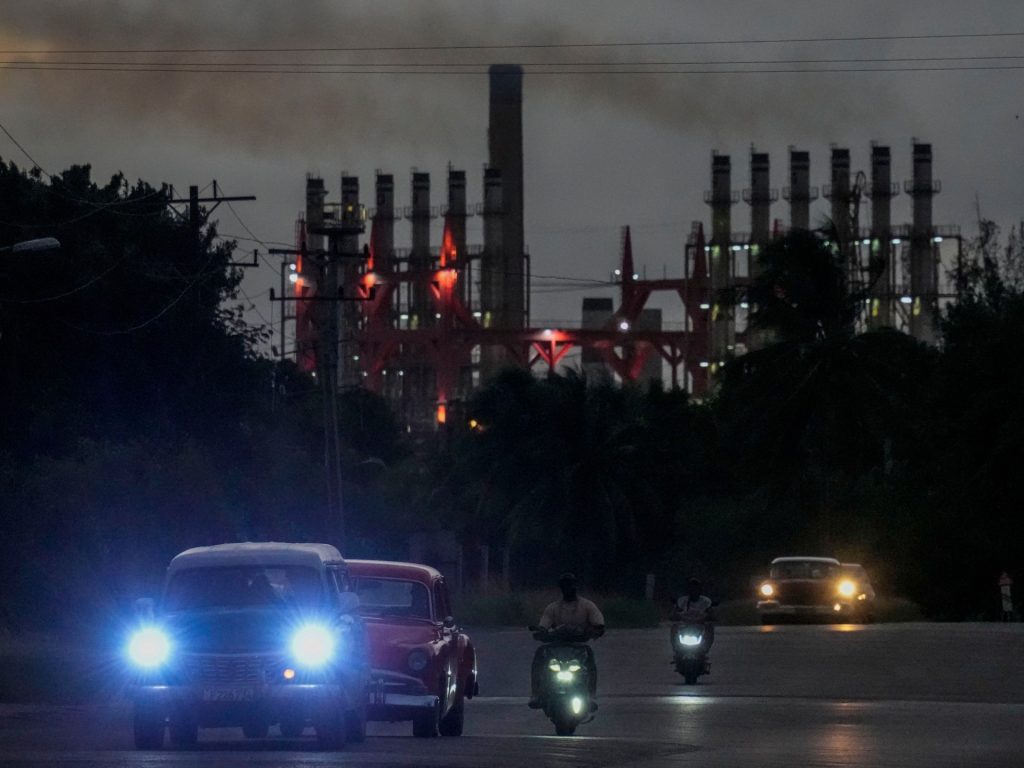Cuba is currently facing a severe energy crisis due to a nationwide electricity shortage and the aftermath of a deadly hurricane that killed at least seven people. The government has announced that all non-essential workplaces and schools will remain closed until Sunday to conserve energy, with only vital services such as hospitals remaining open. The country’s largest power plant collapsed, causing a domino effect that led to the entire energy grid collapsing. Hurricane Oscar further exacerbated the situation by flooding rivers and damaging power lines in eastern Cuba.
Although the government initially planned to reopen workplaces and schools on Thursday, delays in restoring power meant that this was not possible. By Tuesday, Cuba reported that 70 percent of the country had power restored, although many areas outside the capital Havana were still without electricity. The power grid is still experiencing a 30-percent energy deficit during peak hours, according to state media reports citing data from the state electric company, Union Electrica (UNE). President Miguel Diaz-Canel visited the town of San Antonio del Sur, which was severely affected by the hurricane, reassuring residents that they are not alone.
Cuba’s energy infrastructure consists of ageing oil-fired thermoelectric plants, floating plants leased from Turkish companies facing fuel shortages, and diesel-powered generators. Many of the thermoelectric plants were built in the 1970s and are in need of significant repairs. This energy crisis is just one aspect of a broader economic crisis facing Cuba, marked by rising inflation and shortages of essential items such as medicine, food, and water. Concerns about potential social unrest have led Díaz-Canel to warn that the government will not tolerate any attempts to disrupt public order.
The Cuban government and its allies have blamed the United States’ trade embargo, in place for over 60 years, for exacerbating their economic and energy challenges. The embargo has restricted Cuba’s access to vital resources, including sanctions on oil tankers delivering fuel from Venezuela. White House press secretary Karine Jean-Pierre acknowledged the hardships facing the Cuban people but also pointed to the government’s mismanagement of its resources as a contributing factor. Public anger over the energy crisis has led to sporadic protests and demonstrations in some areas, with calls for the government to address the issue and restore power to communities in need.















